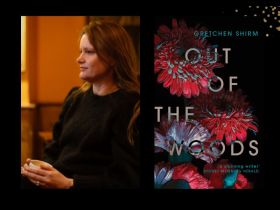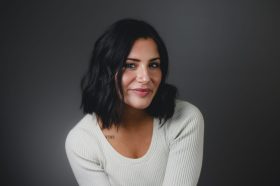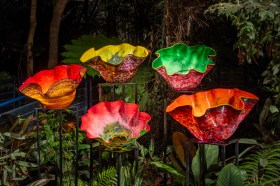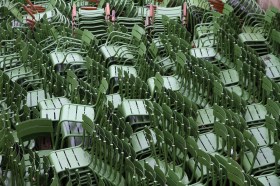Writing students can learn more than just the craft from teachers who are active creative practitioners. Image supplied.
When author Jodi McAlister received rejection letters from publishers for the first novel she wrote, she curled up into a ball and cried. These, she thought, were proof that after years of writing stories from the age of six, she would never fulfil her goal of being an author.
‘I decided that the rejections meant that I was a terrible writer and my work was garbage, so I got a bit precious about it,’ she said.
But then she realised the letters were actually helpful; they contained great feedback for her writing and she persevered, eventually penning the first of three young adult fiction books in her Valentine series (the most recent published this year) while completing her doctorate.
McAlister then quickly landed a publishing deal with Penguin Random House and academic appointments, first at the University of Tasmania and now at Deakin University, where she teaches Writing for Young People as part of the School of Communication and Creative Arts. She is also continuing her research into representations of love across various forms of literature and popular culture (which means she gets to watch myriad seasons of The Bachelor as ‘work time’).
While her expertise is unquestionably a drawcard for students, McAlister said it’s her journey through the challenges of becoming a published author that is so important to share.
‘If there is one thing I can get across to my students, it’s that in publishing you are going to get rejection but that’s OK,’ she said. ‘You can’t let yourself get too disheartened by it, you have to keep persisting.
‘Publishing houses and agents and editors are getting so many manuscripts – thousands. So for them to champion one, they really have to love it. So it takes a while to find the person who really, really loves your book.’
McAlister said many students who enrol in Deakin’s undergraduate Bachelor of Creative Writing degree and go on to undertake Honours or Masters courses in the field, benefit enormously from the specialised expertise of faculty staff. There are several published poets, writers of experimental fiction and others such as herself whom she describes as more ‘commercial’ writers.
‘We are really lucky at Deakin in that we have a diverse range of skills,’ she said. ‘So no matter what you want to write, there is generally someone here who you are really going to gel with.’
Passing on her expertise is one of McAlister’s great passions, and the calibre of her students’ work is a wonderful reward, she said.
‘It’s great that students can learn the craft from someone that has been battle-tested in a way – when I speak about craft I am speaking with some authority. This is one of the reasons that I really like teaching Writing for Young People, because it is the space I write in, so I feel like I am very qualified to talk about it,’ McAlister explained.
‘I think we are going to get a couple of published authors out of this course at some stage in the future because the standard is so high and that makes me really happy.’
McAlister said she is also up front with students about the realities of life of a working author.
‘I think there are a lot of students who would like to become published authors but the reality of being an author in Australia at the moment is that it is very hard to make a living wage,’ she said. ‘I am a pretty good example of what a working author looks like – I have a full-time career, and I write.
‘But what is really interesting is that while some of the realities of being an author are quite depressing, they are often not a deterrent because people love to write so much that it kind of doesn’t matter. You can have a day job and still write.’
Deakin’s three-year undergraduate degree offers core courses to develop students’ writing skills but also a broad range of electives that McAlister calls ‘cool’, including writing for video games, sex and gender studies, and children’s literature. Students also have the opportunity to contribute to Deakin’s own international writing Journal, Verandah. This variety and experience recognises the various mediums in which stories are consumed, but also different career opportunities for writers.
‘Obviously you still can write a book, which is what I do, but we have so many different pathways you can follow,’ she said. ‘You can come out with a really well-rounded writing education.’
The course also features a burgeoning internship program to give students an even broader understanding of industries in which they may find their own ‘day job’.
For more information about Deakin’s creative writing courses, visit the website.





